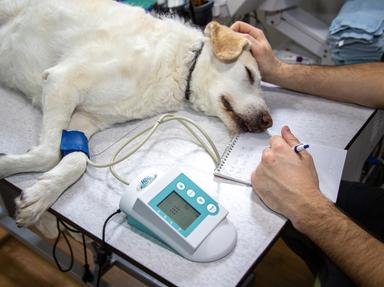Quiz Answer Key and Fun Facts
1. Which is NOT a danger of rawhide?
2. You should never play tug with a dog because it will make the dog more aggressive.
3. What is the most common hazard associated with a standard tennis ball?
4. Baked bones are safer than raw bones.
5. Which is a safe chew toy for every dog?
6. Edible dog chews are safe and non-edible ones are not.
7. What is the largest hazard associated with plush toys?
8. When choosing a dog toy, what is not a safety consideration?
9. Which is NOT a benefit to dogs having toys?
10. What is the best way to prevent a dog from being injured by a toy?
Source: Author
toughynutter
This quiz was reviewed by FunTrivia editor
guitargoddess before going online.
Any errors found in FunTrivia content are routinely corrected through our feedback system.

